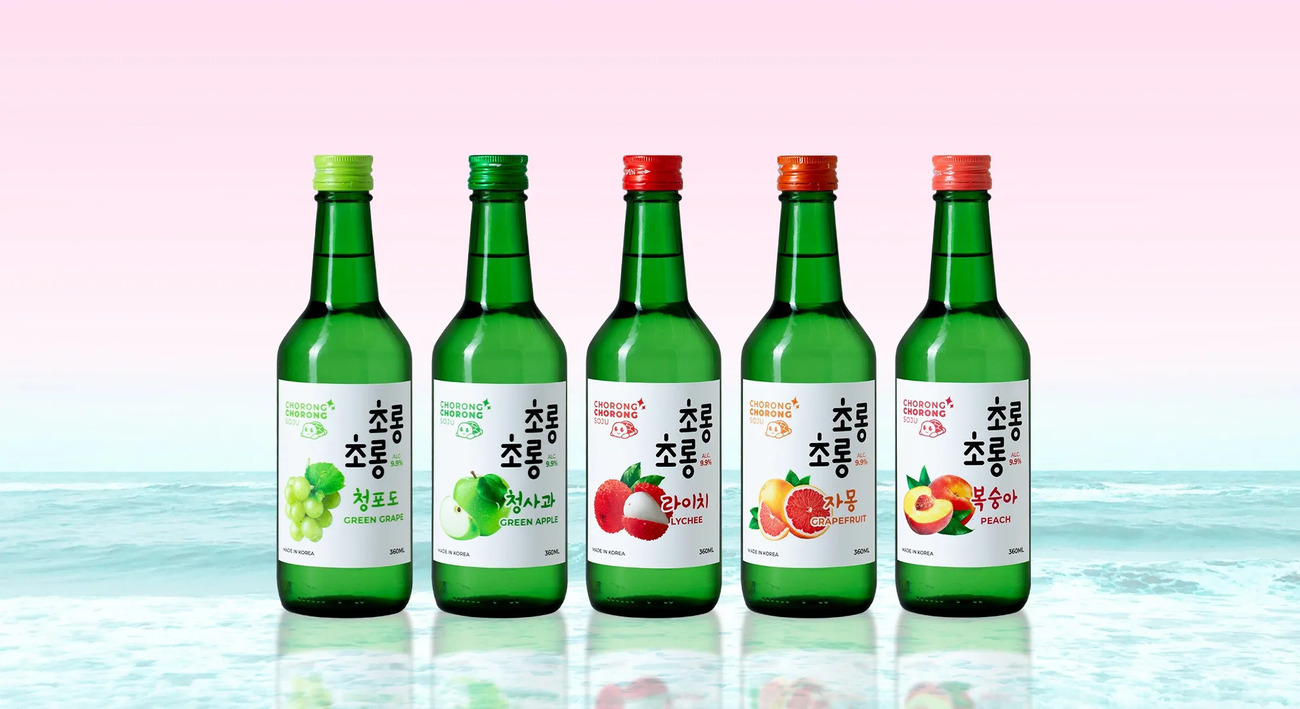
Ever wondered what makes soju the go-to drink at Korean BBQs or why it's a staple in K-dramas? Beyond its smooth taste and clear appearance, there's a whole world of nutrition facts about soju that might just surprise you. From its calorie count to its alcohol content, understanding what's in your glass can add an extra layer of enjoyment to your drinking experience. So, what are some eye-opening nutrition facts about soju? Well, for starters, it's lower in calories than you might think, making it a popular choice for those watching their intake. But that's just the tip of the iceberg. Let's dive into the fascinating world of soju and uncover 15 nutrition facts that will make you see this beloved beverage in a whole new light. Ready to get the lowdown on your favorite Korean spirit? Let's go!
Key Takeaways:
- Soju is a low-calorie, low-carb alcoholic beverage with minimal sugar and no fats or proteins. However, moderation is crucial to avoid health issues like intoxication and hangovers.
- Soju is a cultural icon in Korea, enjoyed in social gatherings and business meetings. It comes in various flavors and has gained popularity worldwide, constantly evolving in the global spirits industry.
What is Soju?
Originating from Korea, soju is a clear, colorless distilled beverage. Traditionally made from rice, wheat, or barley, modern versions often incorporate other starches such as potatoes, sweet potatoes, or tapioca. Soju's popularity isn't confined to Korea; it's a global phenomenon, enjoyed by people around the world.
Soju's Nutritional Profile
When considering alcoholic beverages, it's essential to understand their nutritional content. Soju, with an alcohol content typically ranging from 16.8% to 53% by volume, is no exception. Here's a closer look at what makes up this beloved drink.
-
Calories: A standard serving of soju (1 shot or approximately 1.5 ounces) contains about 64 calories. This is relatively lower compared to other alcoholic drinks.
-
Carbohydrates: Soju is low in carbs, with a single shot containing roughly 1.8 grams. This makes it a suitable option for those monitoring their carbohydrate intake.
-
Sugars: Unlike many flavored liquors, soju has minimal sugar content, often less than 1 gram per serving. This aspect makes it a preferable choice for individuals trying to reduce sugar consumption.
-
Fats: Soju contains no fats, making it a light option for those who are health-conscious.
-
Proteins: Similar to fats, soju does not provide any proteins.
Health Considerations of Drinking Soju
While soju might seem like a healthier option due to its low calorie and sugar content, moderation is key. Excessive consumption can lead to various health issues.
-
Alcohol Content: Despite its relatively low alcohol content compared to other spirits, soju can still lead to intoxication and related risks if consumed in large quantities.
-
Hangover: Many people report severe hangovers from soju, which could be due to its purity and the way it's consumed in social settings.
-
Additives: Some commercial soju brands add sweeteners or flavorings, which could affect its nutritional profile and health implications.
Soju in a Balanced Diet
Incorporating soju into a balanced diet requires mindfulness. Here are a few tips:
-
Moderation: Limiting intake is crucial. For most adults, moderate drinking means up to one drink per day for women and up to two drinks per day for men.
-
Hydration: Alcohol dehydrates the body, so it's important to drink plenty of water alongside soju.
-
Healthy Eating: Consuming nutritious foods before drinking can help mitigate some of the negative effects of alcohol.
Cultural Significance of Soju
Soju isn't just a drink; it's a cultural icon in Korea. It plays a significant role in social gatherings, celebrations, and even business meetings.
-
Tradition: Sharing soju is a communal activity, often accompanied by food and conversation, strengthening bonds between friends and family.
-
Variety: There's a wide range of soju flavors available, from classic to fruit-infused, catering to diverse palates.
-
Global Reach: Soju's popularity has spread far beyond Korea, with international enthusiasts enjoying its unique taste and cultural heritage.
-
Innovation: Brewers are constantly experimenting with new flavors and production methods, making soju a dynamic and evolving part of the global spirits industry.
A Final Sip on Soju's Nutritional Landscape
Soju, with its smooth texture and unique flavor, isn't just another drink; it's a cultural icon with a nutritional profile worth noting. From its moderate calorie count to the absence of fat and carbs, it's clear why this Korean spirit holds a special place in many hearts and diets. But remember, moderation is key. Enjoying soju within reasonable limits can add a delightful twist to your social gatherings without derailing your health goals. Whether you're toasting to good health or simply savoring its distinct taste, soju offers more than just a buzz—it's a sip into Korea's rich culinary tradition. Next time you raise a glass, you'll not only be celebrating the moment but also making a choice that's smarter than you might have thought. Cheers to that!
Frequently Asked Questions
Was this page helpful?
Our commitment to delivering trustworthy and engaging content is at the heart of what we do. Each fact on our site is contributed by real users like you, bringing a wealth of diverse insights and information. To ensure the highest standards of accuracy and reliability, our dedicated editors meticulously review each submission. This process guarantees that the facts we share are not only fascinating but also credible. Trust in our commitment to quality and authenticity as you explore and learn with us.


